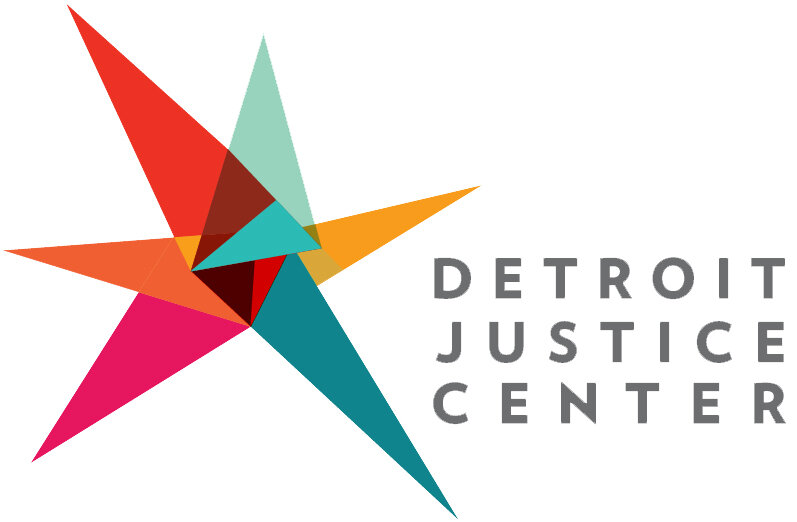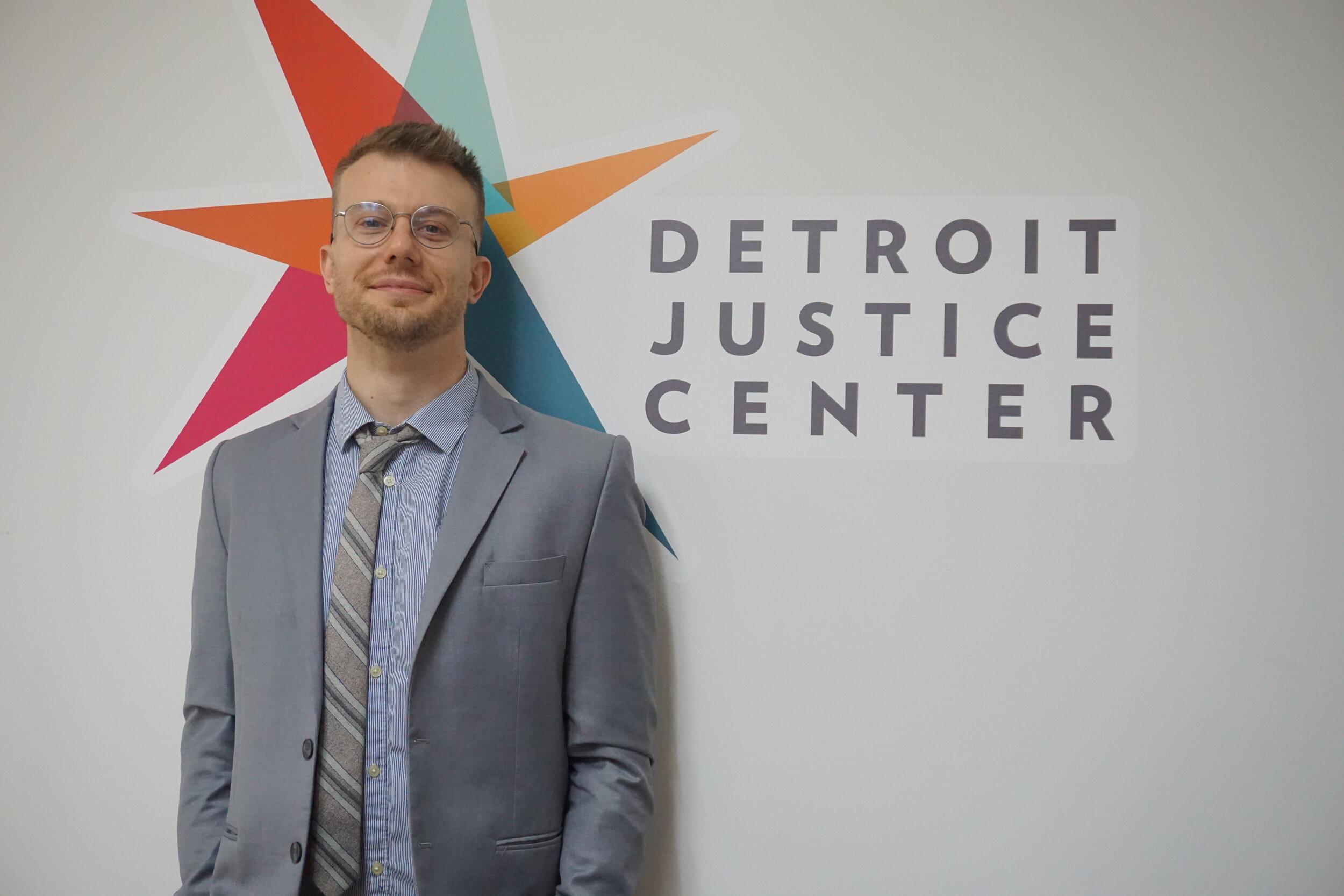A traffic ticket shouldn’t lead to debt or jail. Here’s how to fix the system.
by Staff Attorney Geoff Leonard (originally published in the Detroit Free Press)
I am an attorney at the Detroit Justice Center, I represent low-income drivers in municipal traffic courts. Every day, I witness a system where, if you are poor, minor traffic tickets can quickly spiral into a cycle of ever-increasing debt, jail, and destitution. The human costs of this system cannot be underestimated.
In this system, a woman’s cervical cancer can lead to jail time, because she could not work while undergoing treatment, could not afford to pay a speeding ticket while unemployed, had her license suspended for the unpaid ticket, continued to drive to her doctor because she did not have access to reliable public transportation, and was eventually arrested on a warrant for the unpaid ticket and driving on a suspended license.
In this system, someone can get beaten up, call the police to report his assault, and instead of getting help, end up getting arrested and held in jail for a week because there were warrants out for his arrest for unpaid traffic tickets, and he could not afford to post bond on those warrants.
In this system, a judge, even after being successfully sued by the ACLU three times for sending poor drivers to jail in violation of the constitution, can still send a disabled single father of two minor children, living only on social security, to jail for 60 days for driving on a suspended license.
So why is this happening?
Over-policing: Too often, police single out poor, young, people of color — specifically black drivers — especially in majority-white areas, by stopping and ticketing them for minor traffic offenses that white, middle-class drivers rarely see enforced, such as small items hanging from the rearview or slowing down in traffic to drop someone off, or driving a mere five miles over the speed limit. For our clients, this reality is obvious, they frequently report being followed by suburban police until they commit a small traffic offense, being told by police that they decided to “randomly” run their plates, being given an implausible reason for a stop, like that they “looked lost,” or simply that the police refused to give a reason for stopping them. But the data on police stops back this up. Nationally, black drivers are significantly more likely to be stopped than white drivers, for the exact same behavior on the road. And where the data has been gathered in Michigan, black drivers are almost twice as likely to be stopped than white drivers, and receive an extremely disproportionate share of tickets.
Court costs and fines: Municipal traffic courts charge court costs and fees on top of already high fines. With costs and fees, civil infractions, like speeding, can cost almost $400, while driving on a suspended license can easily exceed $700. These costs are grossly disproportionate. We regularly see judges impose $400 in costs on an offense that carries only a $100 fine.
Driver’s license suspensions: If you cannot afford to pay a traffic ticket, Michigan suspends your driver’s license and makes driving on a suspended license a misdemeanor. If you drive on a suspended license, your car can be impounded, you can be arrested and required to post a $500 bond, be held for weeks waiting for court, and even sent to jail for months.
Arrest warrants: Municipal courts use civil contempt and criminal arrest warrants to bring people to court on traffic debt. If you have not paid a traffic ticket, in addition to your license being suspended, there is likely a warrant out for your arrest.
There are simple ways to fix this:
1. End license suspensions. License suspensions are not an effective tool for collecting traffic fines. Suspending someone’s license actually makes it less likely they will be able to earn money to pay off their debt because it will be harder for them to work. Because of this contradiction, at least one federal court has held license suspensions unconstitutional as having no rational basis in public policy. Michigan should end license suspensions, following in the footsteps of Virginia and Mississippi.
2. Make all traffic matters — except maybe DUIs — civil infractions, and make it easier to comply with traffic laws by repealing others all together. Many traffic issues — not registering your car or having a broken tail light — are due to an inability to find the money. Punishing people for them does not make anyone safer, or encourage compliance, it just pushes already precarious drivers into further debt and shame.
3. Repeal the statutes that authorize or require courts to charge fees and costs, and set fines based on a defendant’s net income. Funding courts and the state through court costs has nothing to do with public safety, shifts the tax burden onto the people who can least afford to pay, and creates a perverse incentive for police and courts to over-ticket, over-convict, and over-sentence. In fact, the Michigan Supreme Court has already suggested it is partially unconstitutional. In other states, including Louisiana, the practice has been declared unconstitutional in federal court. Michigan should end this practice, too.
4. Prohibit issuing warrants for traffic matters. Like license suspensions, warrants do not make it any likelier that someone will pay money they do not have. It puts them in a more precarious situation; they cannot work because employers will see their active warrants, or because they continuously get arrested and released, making it difficult to maintain a job. Courts should not be allowed to issue warrants for traffic tickets. Rather, courts could collect traffic fines the way anyone else collects debt, through civil collections.
The Michigan Joint Task Force on Jails and Pretrial Incarceration has a lot of tough questions to consider, and they need to hear from folks whose lives have been impacted by traffic violations. If you, like so many of our DJC clients, have been affected by these practices, you have the opportunity to give testimony at the next public meeting on Friday at Wayne State University Law School at 471 W. Palmer St., Detroit. The meeting begins at 9:30 a.m. Public testimony begins at 1:30 p.m. Written testimony can be emailed to JailsTaskForce@courts.mi.gov.


